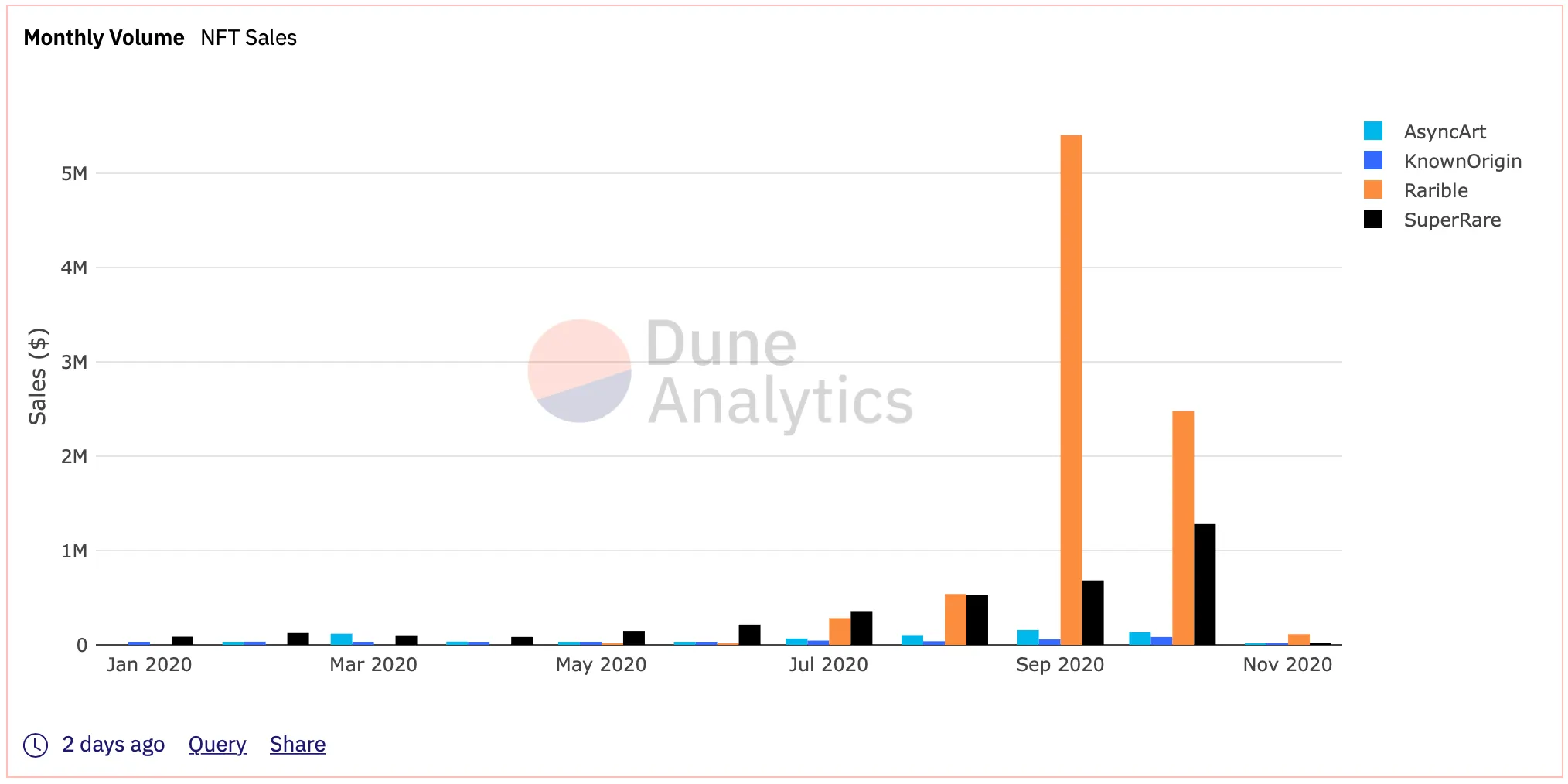In brief
- The NFT industry has seen strong growth in recent months, but Terra Virtua's CEO says we should remain cautious.
- The subjective nature of an NFT's value means we should temper expectations, he said.
- He also suggested the only pathway to sustained growth is mainstream NFT adoption.
The non-fungible token (NFT) market, where art, games, and other collectibles are bought and sold, is growing rapidly. Yet Gary Bracey, CEO of Terra Virtua, said today that we should take a cautious approach to this explosion in interest.
The NFT industry has been showing big signs of growth in recent months. According to data site NonFungible, the top two NFTs marketplaces—CryptoKitties and Decentraland—have seen total sales reach $38 million and $37 million respectively. But despite the sudden growth, Terra Virtua’s CEO suggests we temper our expectations.
“Whilst everyone in this sector welcomes the reported growth in the NFT sector, it should be embraced with a modicum of caution,” Gary Bracey, CEO of Terra Virtua, told Decrypt.
For Bracey, we should be cautious because “art is very subjective and one person’s Michaelangelo is another person’s Mickey Mouse.”
The NFT industry explained
NFTs are a unique subsection of the cryptocurrency industry.
In simple terms, NFTs are crypto-collectibles that are different from typical cryptocurrencies, insofar as they are all individually unique (or non-fungible). They are valuable in the same way that real world collectibles—like the Mona Lisa painting—gain value because they are rare and unique.
But it’s not just the bigger platforms that are seeing the greatest growth. SuperRare, a digital artwork platform, reported groundbreaking results yesterday as it revealed that $4 million worth of artwork sales were made in October alone. What’s more, artists made over $3 million in October after selling over 10,000 artworks, another unprecedented figure.
According to Dune Analytics, a website that tracks data for the Ethereum community, the NFT industry experienced huge success in September 2020, where the total monthly volume of NFT sales spiked and broke $6.2 million. One month later in October, the NFT industry experienced a pullback, falling to $3.9 million.

“In our current NFT 'bubble', then there is a lot of activity but consigned to the handful of market leaders within a comparatively small sector,” said Bracey, adding that “the race hasn’t really started yet, this is just the warm up.”
Despite the promises shown by some NFT platforms, moving the industry forward as a whole might require further mainstream adoption.
“Perhaps we are already at saturation point with NFT buyers and so the only real pathway to significant growth is via the mainstream,” Bracey said, adding that “we also need to educate the masses with regard to the advantages of blockchain and NFTs and also produce content—artwork in particular—that supports a perceived value proposition.”
Regardless of the rest of the industry, CryptoKitties is still going strong. Everyone seems to love cats, whether they’re real or digital.

